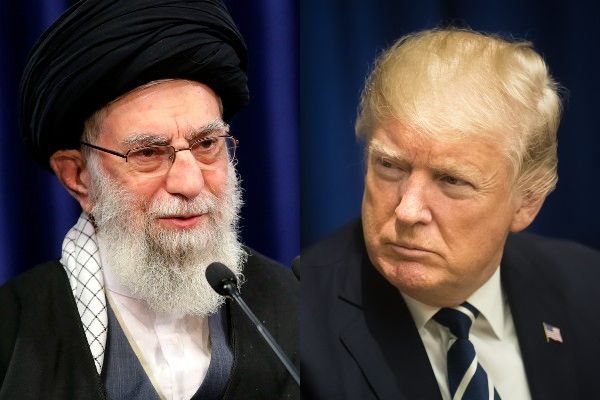The report argues that U.S. support for a potential Israeli strike on Iran’s nuclear program is the best way to ‘build leverage and halt Tehran’s nuclear clock.’
By Yaakov Lappin, JNS
Once he takes office on Jan. 20, President-elect Donald Trump will have very little time to stop Iran’s march to nuclear weapons and no margin for error, according to a report by the Jewish Institute for National Security of America.
The report, released on Dec. 19, calls on the incoming U.S. administration to join Israel in giving Iran “an ultimatum at the outset of the presidency: agree fully and immediately to verifiably dismantle its nuclear weapons program or invite its imminent and utter destruction.”
The plan also calls for a blend of massive economic and diplomatic pressure, backed by a credible military posture. This would include the implementation of sanctions on Chinese banks and other companies conducting trade with Iran.
The report argues that U.S. support for a potential Israeli strike on Iran’s nuclear program is the best way to “build leverage and halt Tehran’s nuclear clock,” and calls for Trump to publicly state that such a strike “is consistent with longstanding U.S. prevention policy.”
Other suggested steps include expediting delivery of U.S.-made KC-46A aerial refueling tankers purchased by Israel in 2021, and “ensuring America’s prepositioned weapons stockpile in Israel is properly updated with precision guided munitions (PGM), including potentially bunker busters and air-to-air missiles, to fulfill the depot’s official purpose of supporting Israel in an emergency such as wartime.”
On the diplomatic front, Washington must outmaneuver Iran’s attempt to split “the United States from its allies” by forging and maintaining a “wide-ranging coalition of Israeli, Arab, and European partners that will be vital for deterring and denying further Iranian nuclear advances, and, if necessary, compelling Tehran to negotiate urgently and earnestly,” the report states.
The Trump administration must signal a credible military threat from day one, the report argues.
Last week, the JINSA plan was presented by members of the organization’s Iran Policy Project, including co-chairs Ambassador Eric Edelman and U.S. Air Force General (ret.) Charles Wald.
Edelman stated during a webinar that following the collapse of the Assad regime, which will make it almost impossible for Iran to resupply its Lebanese proxy Hezbollah, a unique moment has arrived.
“Iran is both progressing towards nuclear weapons and … the debate in Iran internally has begun to be one about those who would like to accelerate the program and rely on nuclear deterrence in order to create a shield, behind which Iran can rebuild its whole network of malign activities, and those who are talking about negotiation,” he said.
“We understand President Trump has a predisposition to want to do deals, and he might understandably want to avoid beginning his presidency with the risk of moving into a military operation,” said Edelman, adding, “It could lead to war.”
However, “We think it’s very important that if he does decide to opt to go down the negotiations route that he put very strict parameters on it and not allow the Iranians to do what they’ve done in the past, which is to use negotiations as dilatory tactics while they build up their own nuclear program and run out the clock,” he said.
Ambassador Elliott Abrams, a member of the task force and former U.S. special representative for Iran, added, quoting former U.S. statesman George Shultz, “The hard reality is that diplomacy not backed by military force is ineffectual.”





